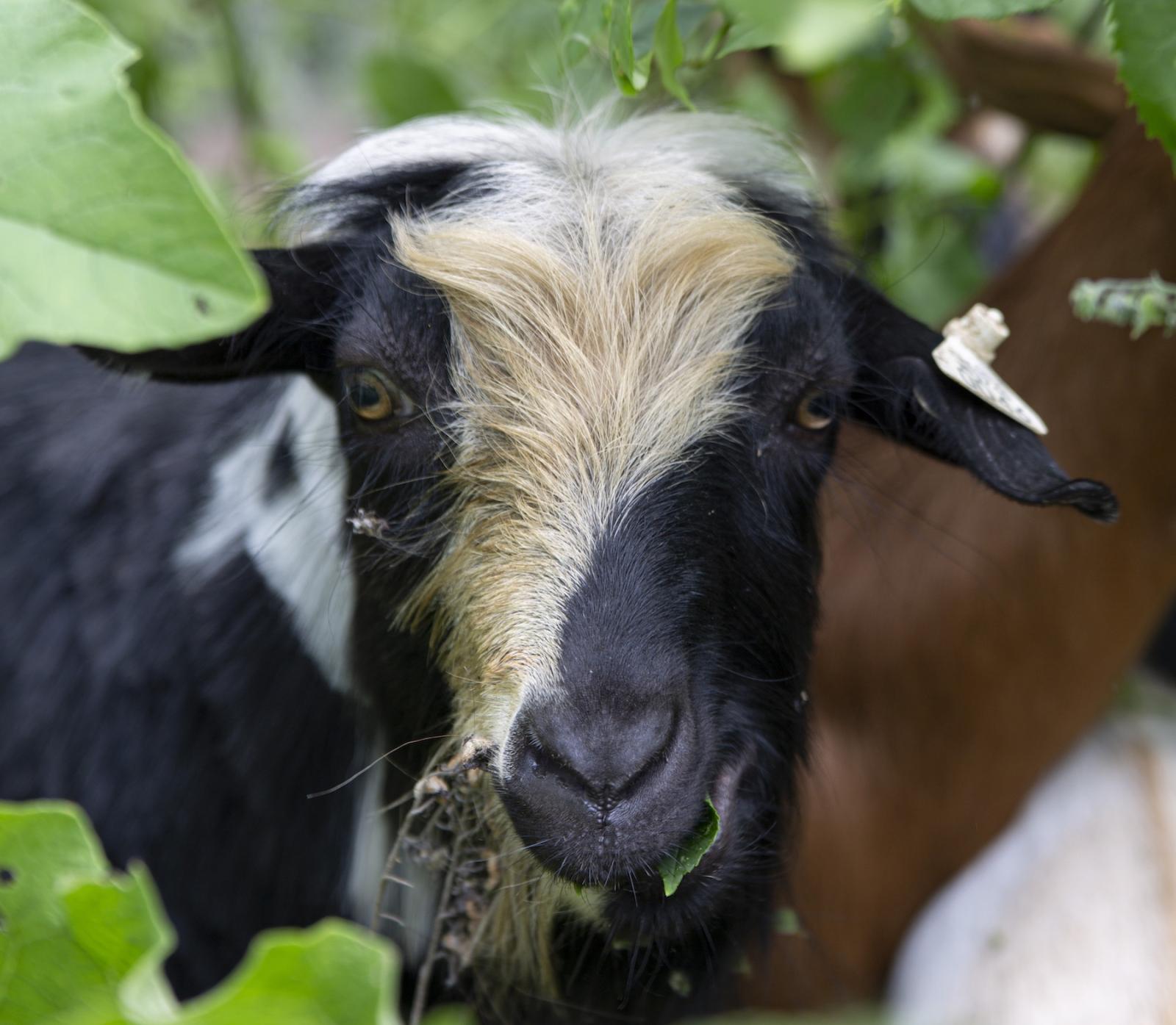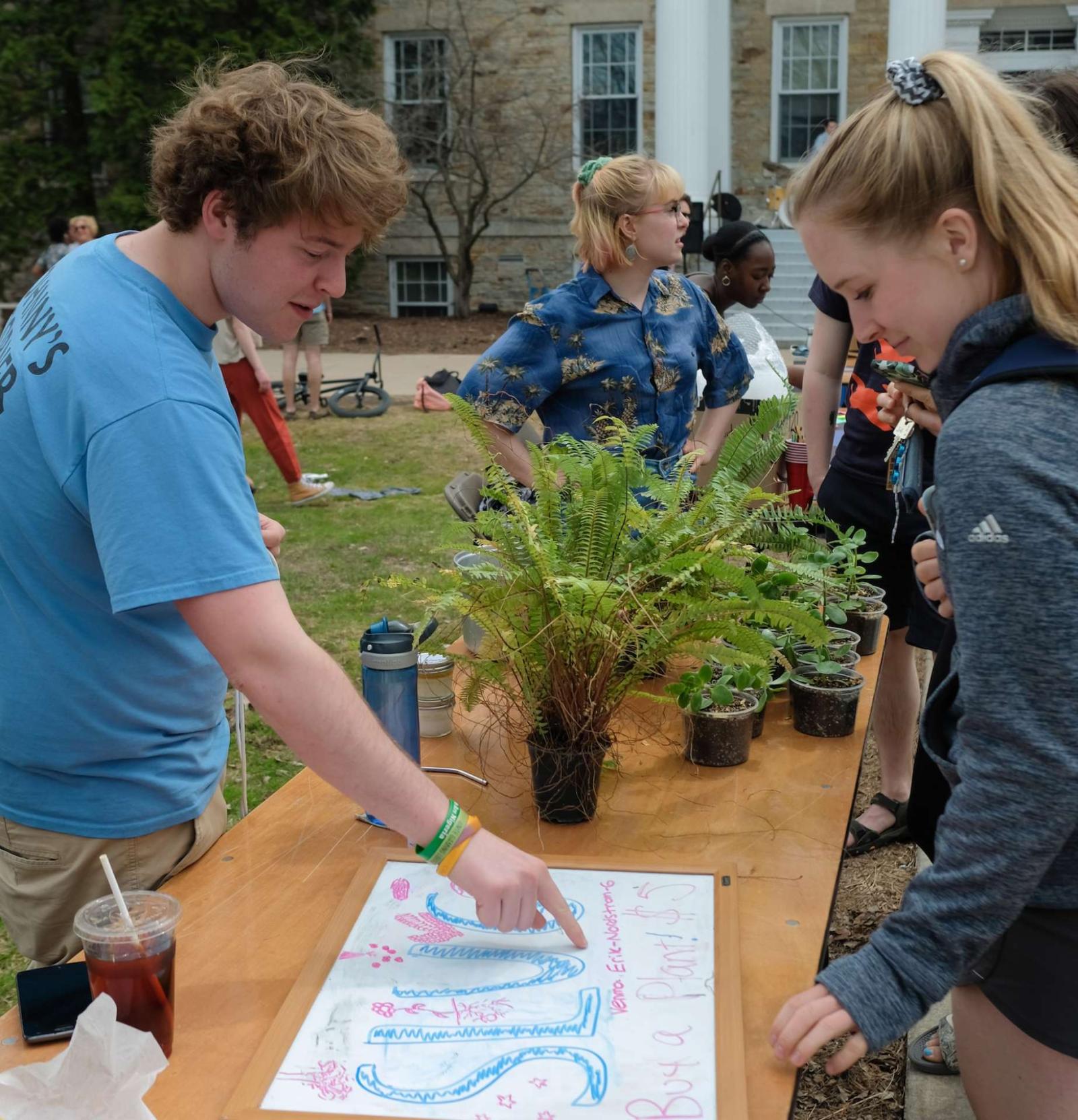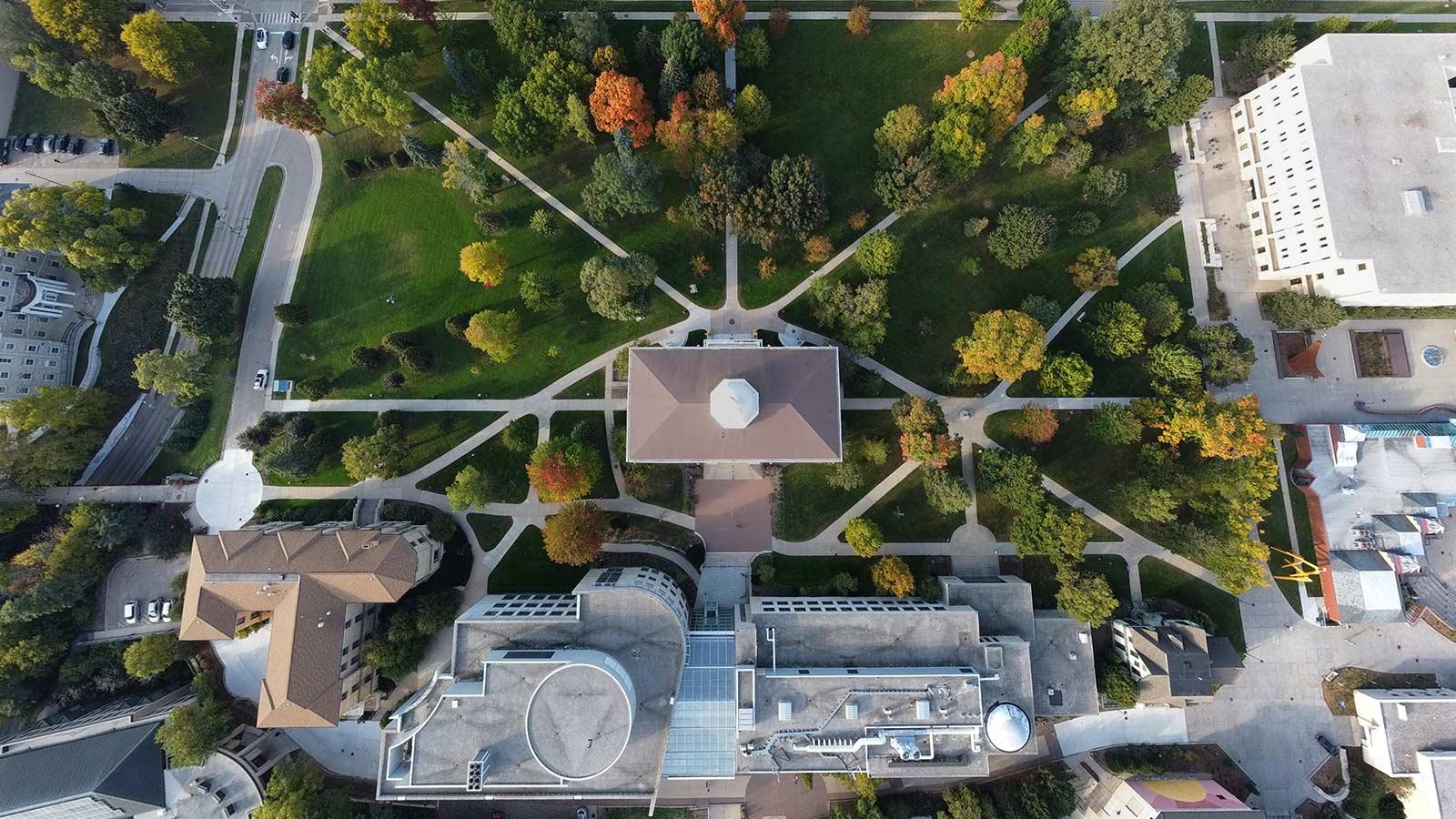Lawrence University’s ongoing commitment to sustainability has been recognized with an upgraded rating by the Association for the Advancement for Sustainability in Higher Education (AASHE).
The organization recently awarded Lawrence a silver rating in its Sustainability Tracking, Assessment & Rating System (STARS), an upgrade from the bronze rating the school received in 2017.
“It’s great to see that progress rewarded in the upgraded silver rating,” Sustainability Coordinator Kelsey McCormick said.
The AASHE ratings are built on a bronze-silver-gold-platinum system. Only a handful of schools worldwide earn platinum status. By moving into the silver category, Lawrence has continued its sustainability growth as it eyes an eventual gold rating. It’s a matter of continuing to build on the momentum that started two years ago.
“I think Lawrence has the potential to see gold, maybe within the next five to 10 years,” McCormick said. “It’s a long-term goal. But that’s where we’d like to see ourselves get to.”

Lawrence students working last summer in the SLUG garden brought in 10 goats for two weeks to help control the spread of invasive weeds. (Photo by Liz Boutelle)
For more on Lawrence’s sustainability efforts, see here.
AASHE tracks and measures sustainability efforts tied to academics, engagement, operations, planning, and administration. The school needs to report on a wide array of measurements, from greenhouse gases to how sustainability is infused into the classroom to how its food service operates.
The improved rating points to the more coordinated work Lawrence has been doing on the sustainability front the past two-plus years, supported by a three-year grant it received in 2017 from Margaret A. Cargill Philanthropies.
Lawrence has a history of sustainability-minded student groups being active, for example. And Lawrence’s Environmental Studies interdisciplinary program is more than 40 years old. But the grant allowed the school to build an infrastructure to coordinate and grow those efforts across campus. And the AASHE ratings system has provided an avenue for tracking the progress.
“It’s been my personal undertaking to take all of these sustainability efforts that have existed at Lawrence for a long time and get them all on the same page and moving in the same direction so we can build on each other’s efforts,” McCormick said.
While the Cargill grant will expire, McCormick’s sustainability coordinator position will remain intact, as will the sustainability mechanisms that have been put in place. A Sustainability Steering Committee that includes faculty, students, and staff will continue to provide leadership. The Sustainability Institute for faculty will continue to explore ways to integrate sustainability into existing and new courses. A peer mentorship program will still actively promote and teach about sustainability in the residence halls.
McCormick’s work with the Sustainability Steering Committee, co-chaired by geosciences professor Jeff Clark, has included, among other things, working with student groups such as Greenfire to organize Earth Week events and other Earth-friendly activities, helping students get sustainability grant monies for projects in the Sustainable Lawrence University Garden (SLUG) or elsewhere on campus, supporting bee advocacy work, installing combined trash and recycling containers across campus, and partnering with Bon Appetit to reduce waste in the dining hall.

Students take part in the annual Earth Day Gala on the Lawrence campus.
Students take the lead on sustainability projects. See here.
Staying true to the cause is important to not only the Lawrence community but to prospective students as well, McCormick said. Being committed to improving the university’s environmental impact and enhancing its engagement in sustainability education are crucial talking points going forward.
“It is important for Lawrence to have a visible commitment to sustainability,” McCormick said. “We know that today’s students and prospective students are anxious about the status of the environment and the climate crisis. Our improved AASHE STARS rating shows that Lawrence is continuing to advance its sustainability efforts and is concerned about the world our future graduates will live in.”




